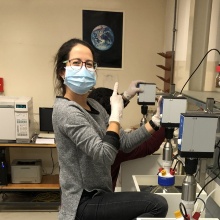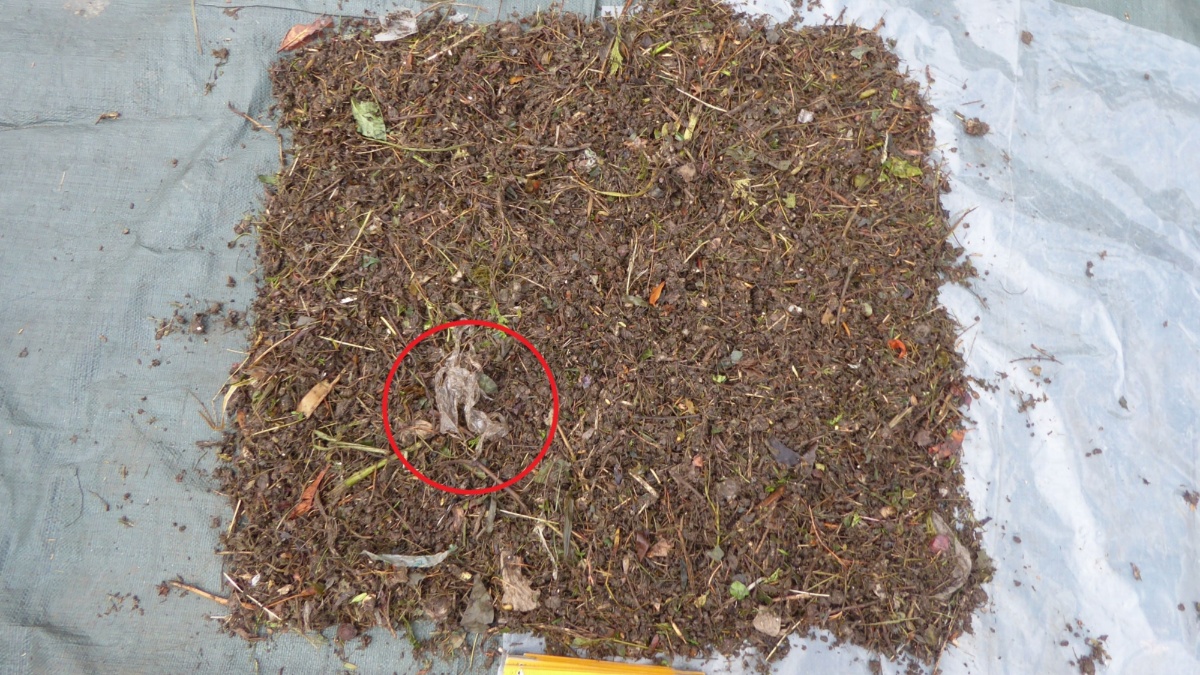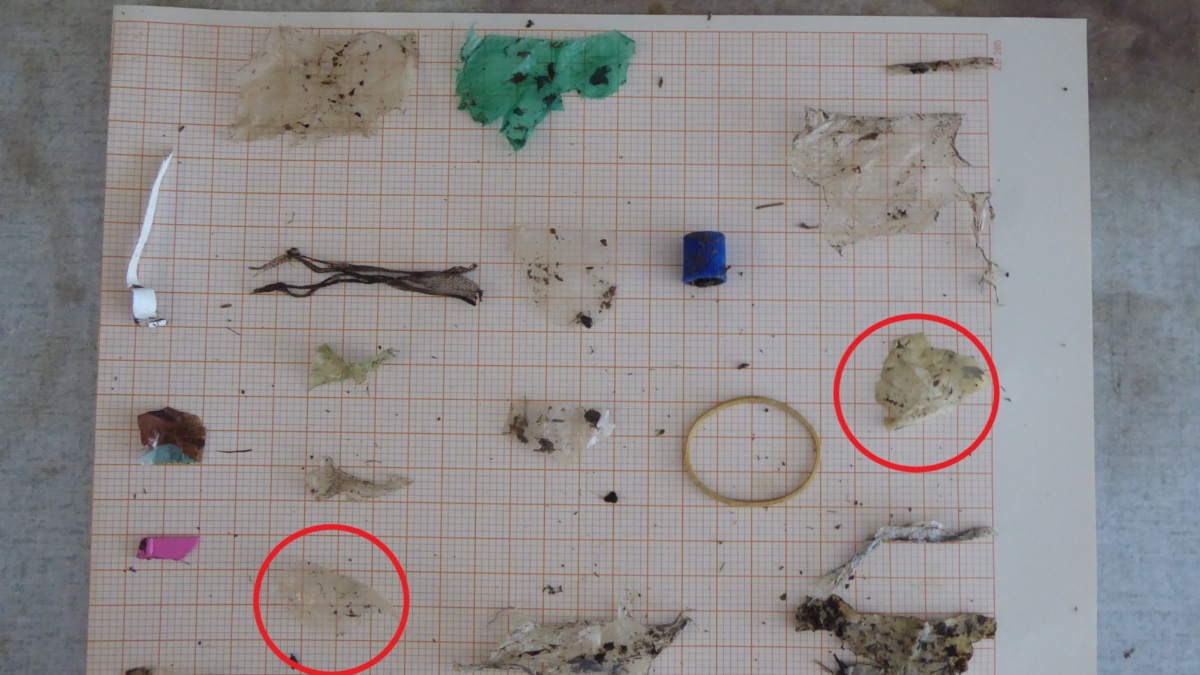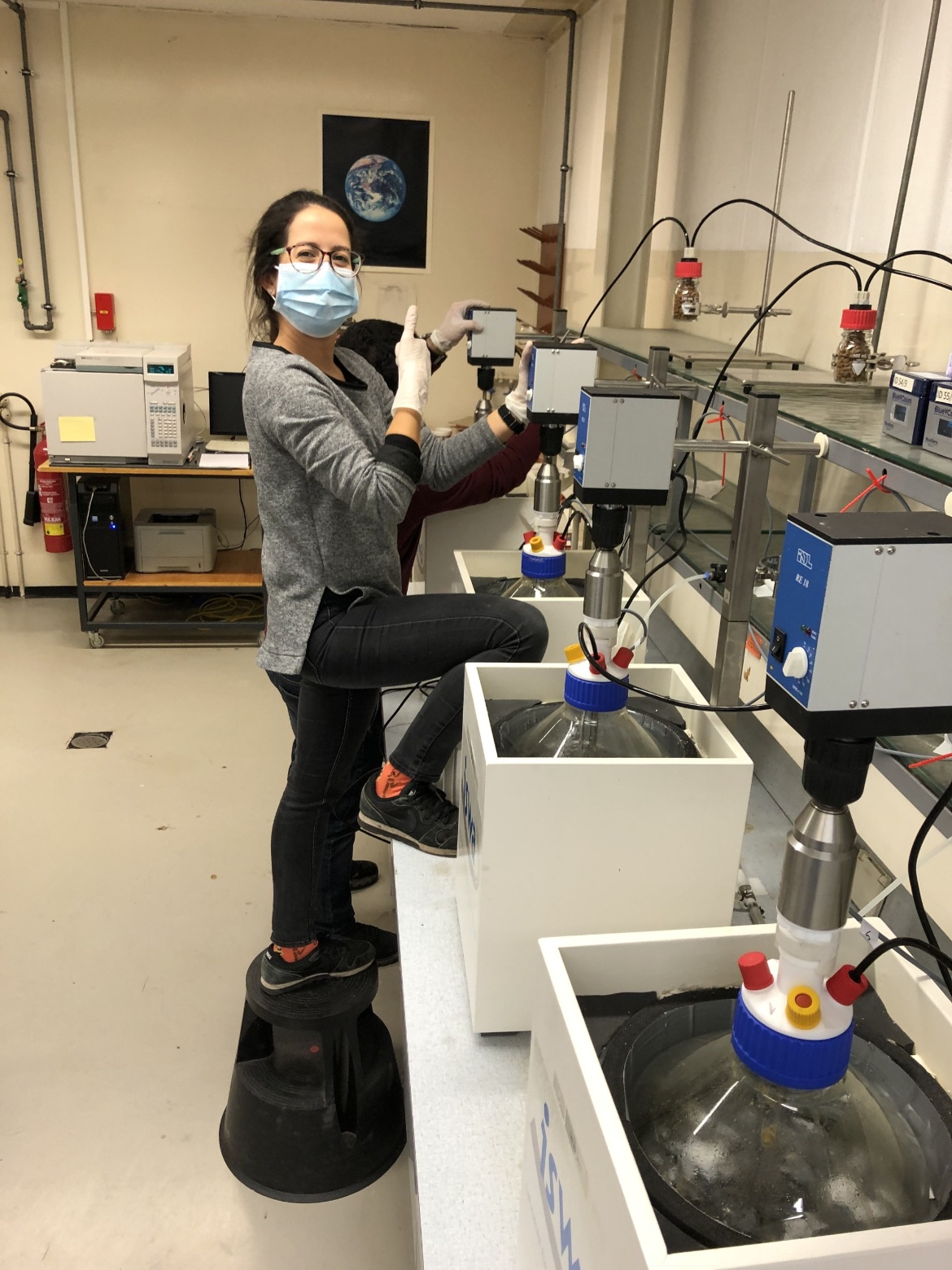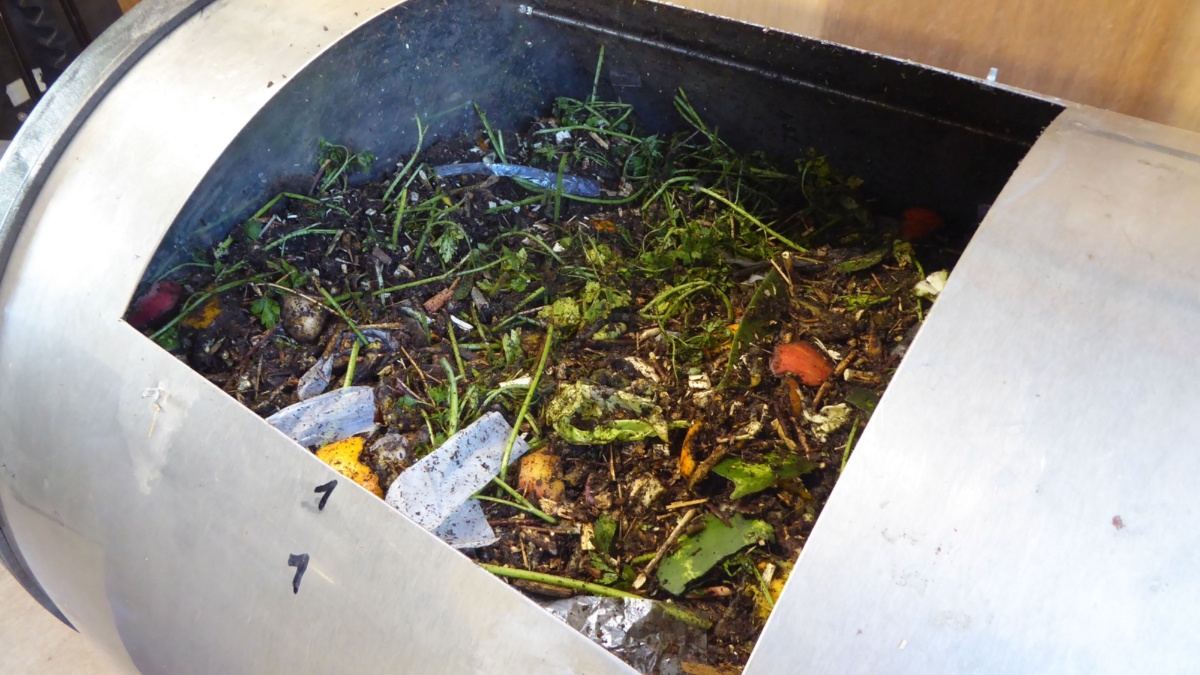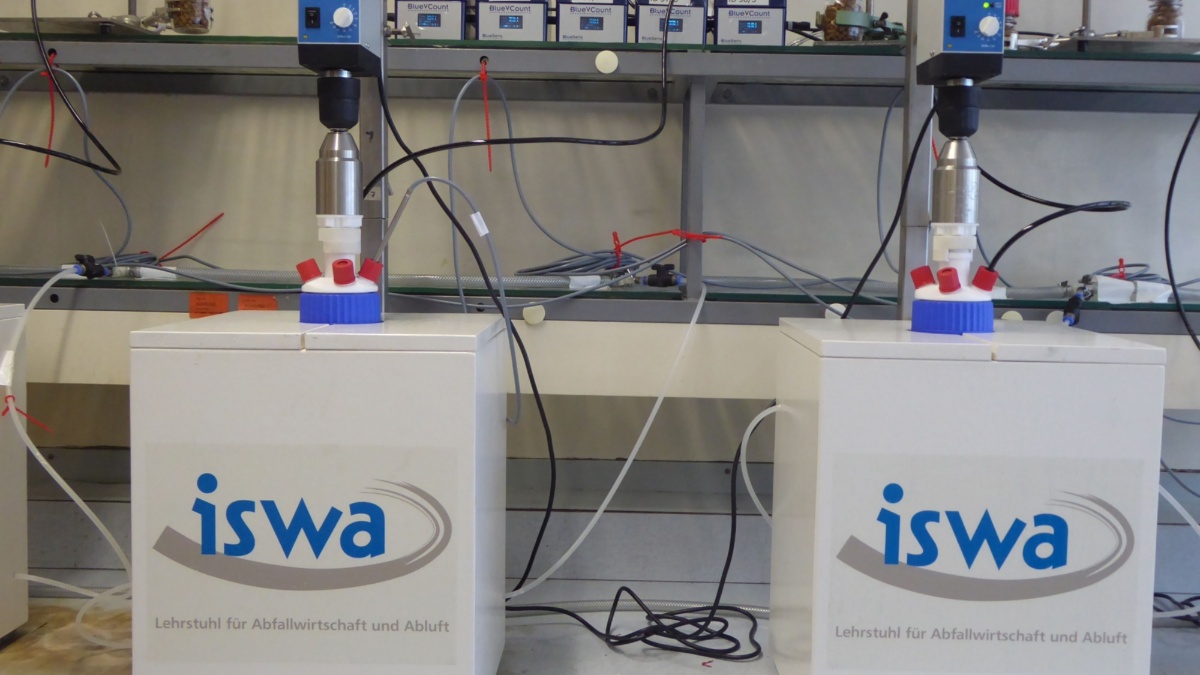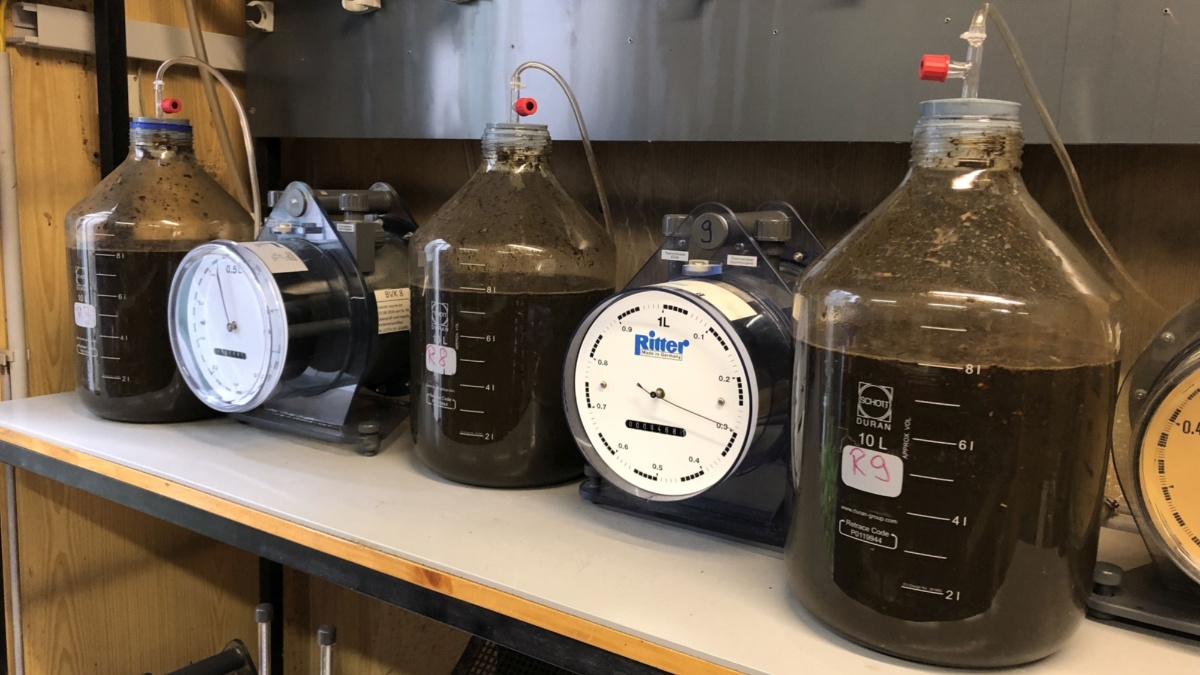Anyone wishing to buy organic chocolate and keep a clear conscience must ensure that the cocoa beans are fair trade, the packaging is recyclable paper and the foil wrapped around the chocolate is “biodegradable”. Or at least, that's what is written on the wrapper. Nevertheless, as Hildemar Mendez knows, the foil wrapper cannot be thrown in the biowaste bin.
Before coming to the University of Stuttgart six years ago, Mendez studied Environmental Engineering in Venezuela. She says, "It was during that time that I read about the international master's program in the newspaper". I was very interested in the topic of recycling, particularly in Germany, which has an extensive recycling system. She is now a research associate at the Institute for Sanitary Engineering, Water Quality and Solid Waste Management (ISWA), and researches microplastics in soil.
I don't really like the word "waste". I don't see waste, I see resources – products that can be reused.
Hildemar Mendez
Mendez reconstructs the journey of microplastics – plastic particles smaller than 5 millimeters – from chocolate foil wrappers, to the biowaste bin and during the recycling process. If plastic enters a biowaste bin, sooner or later it will also end up in crushed form in compost and fermentation products. Polymer-enriched compost then leads to soil contamination. Current research is investigating whether microplastics also enter food products that grow in this soil and that are then eaten by people as a healthy alternative to chocolate.
Biodegradable, compostable, biobased
This happens when waste is sorted incorrectly. Waste is sorted into the biowaste bin that doesn't belong there. But who knows the difference between "biodegradable" and "compostable"? Mendez explains, "Although bioplastics have the appropriate certification, they should, nevertheless, not be thrown in the biowaste bin – at least, not at present, because the time required for this to biodegrade is much longer then the time spent in the recycling plant”.
The term "biodegradable" applies to anything that can eventually be biodegraded. Even if it takes a hundred years. In contrast, if a product is "compostable", this means that it can decompose within a set period of time and under specific conditions. Due to the temperatures used in industrial recycling plants, this process takes place more quickly than in private gardens, but even here it can be the case that the time spent in the plant is too short to ensure that the results are free of residue. Products that are labelled "biobased" are absolutely not suitable for the biowaste bin. These contain compounds that have a high level of heat resistance and are neither biodegradable, nor compostable.
Simulation of composting and fermentation tests
Mendez replicates the composting and fermentation tests that are conducted on a large scale at a waste treatment plant, but on a laboratory scale. She investigates how macroplastics in biowaste behave during the process of biological recycling at a waste treatment facility. To do this, she influences the process: she cuts bioplastics into different sizes and introduces them to the treatment process, she controls the temperature and the mechanical load. She takes samples at different times. The samples show the extent to which macroplastics have fragmented to form microplastics.
While there is now a wealth of research on the enormous damage caused to animals and the environment by microplastics in water bodies and oceans, hardly any attention has been paid to soil damage. Funded by the Umweltministerium Baden-Württemberg, the joint project investigating microplastics and fermentation products from biowaste recycling plants [de] is aiming to change this. Mendez’s research at the ISWA will help to establish standards for compost and fermentation products.
Anyone who wants to continue to buy organic chocolate and keep a clear conscience must ensure that the cocoa beans are fair trade, and that it has an outer wrapper of recyclable paper – and that foils labelled "biodegradable" end up in the residual waste bin. Plastic recycling in Germany is also not suitable for biodegradable plastics.
Series “Specialized in Sustainability”
The series “Specialized in Sustainability” presents research conducted by early career researchers about sustainability at the University of Stuttgart. Research by doctoral students and research associates from various institutes encompasses everything from structural-physical analyses of tree houses to development studies in the Philippines, to lithium battery alternatives. The various disciplines are united by one common goal: researching to ensure an environmentally friendly, sustainable future.


